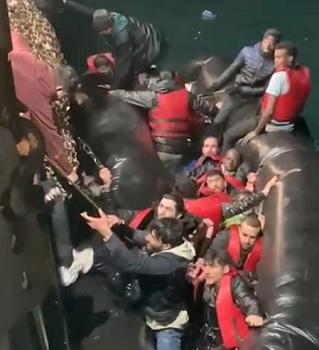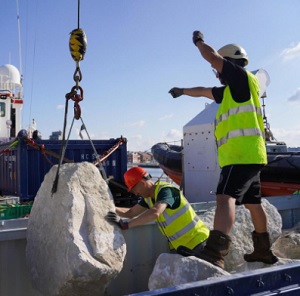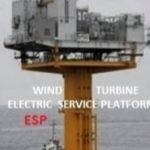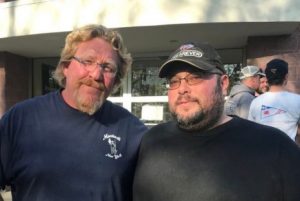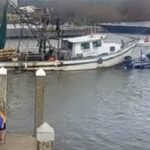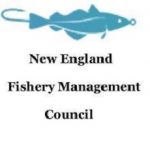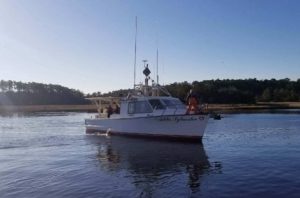Tag Archives: United Kingdom
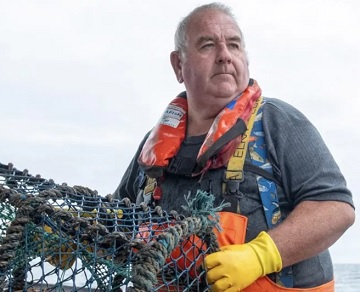
From the heart of a Hartlepool fisher – to EFRA
Dear EFRA COMMITTEE, MMO, local MPs, councillors and interested parties. Please log the ecosystem rock pool make up life change, with the many other die-offs that you haven’t given me feedback on, since the freeport dredge started in 1 September 2021, and the 145.000 tonnes of capital dredge from the toxic Seaton Channel, that you have allowed to be removed, irrespective of its chemical makeup, and dumped six miles out, in the last two weeks. I eagerly await the MMO answers, please copy the EFRA Committee in, and the feedback [as to] why these creatures are all that’s left in the ponds. >click to read< 07:46
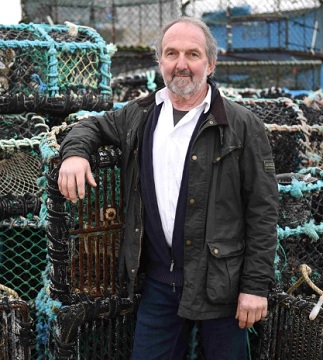
Fishing licence plan ‘bordering on naive’
The government’s plan to prevent French fishing boats depleting stocks in Jersey’s waters is ‘bordering on the naive’, according to local fishermen – as temporary licences allowing European vessels access to local waters expire next week. Jersey Fishermen’s Association president Don Thompson said he feared the 136 French boats licensed to fish in the Island’s territorial waters might decrease in number over time but retiring boats would be replaced by larger, more efficient vessels. These boats would quickly be able to wipe out rich grounds around the Island, such as scallop beds near the Minquiers, leaving Jersey fishermen with little to catch, Mr Thompson told the Environment, Housing and Infrastructure Scrutiny Panel yesterday. >click to read< 12:37
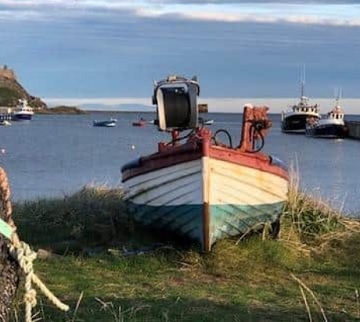
House of Lords peer calls for Holy Island fishing ban proposal to be dropped
Lord Curry of Kirkhale, who sits in the House of Lords, has written to environment secretary Thérèse Coffey to express concerns about Defra plans to designate it a Highly Protected Marine Area (HPMA). There has been strong local opposition to the proposal, backed by Berwick MP Anne-Marie Trevelyan and county councillors Colin Hardy and Guy Renner-Thompson. Lord Curry, in a letter to the secretary of state, writes: “A HMPA ban on fishing would, as Holy Island’s fishermen and residents have expressed, end a thousands-of-years-old industry which still stands at the heart of their community today.” >click to read< 09:48
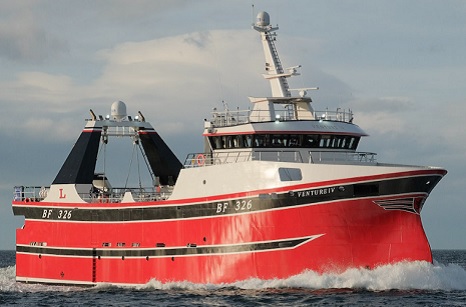
Macduff’s Biggest Newbuild – So Far
This is Mark Lovie’s fourth Macduff trawler in a series that started with the wooden-hulled Venture, built as Endeavour II in 1993. Since then the steel-hulled Venture II in 2001, Venture III in 2017 and now Venture IV have each been the largest vessels built at the yard at various points. The new Venture IV is the yard’s largest newbuild in terms of both size and gross tonnage. The newbuild process began in 2020 when he went to the yard looking for options for a new vessel to replace his previous <24m registered trawler, as well as seeking improvements in fuel efficiency, speed, sea keeping, and crew comfort. The yard’s design team knew that a larger vessel would be needed to meet all these requirements and the outcome was a design for a 34.50 metre, 10.50 metre breadth trawler. Video, photos, >click to read< 17:48
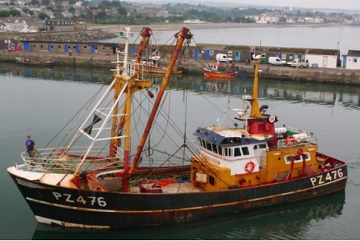
Angry and frustrated
‘What was delivered in terms of additional fishing opportunities and control over access was very far from what any self-respecting coastal state might expect,’ an NFFO representative commented. All the same, the NFFO remains certain that ‘escaping the dead clutches of the overcentralised and cumbersome Common Fisheries Policy’ is regarded by many as a major positive – ‘although a huge amount of work remains to be done to realise the benefit of this new framework, especially through the development and implementation of fisheries management plans, it is a huge opportunity.’ The NFFO states that against this background, it is disappointing that the promised agility of the new framework to deliver effective and timely outcomes has been thwarted by the UK’s own legislative systems. >click to read< 10:14
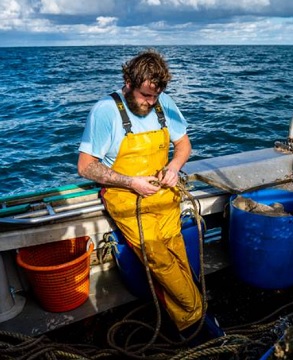
Is the UK really allowed to catch more fish because of Brexit?
British politicians earlier this week praised the results of the EU-UK 2023 Brexit fishing quota negotiations, saying the UK will be able to catch 30,000 more tonnes of fish than if the island nation had remained within the European bloc. The UK fishing industry will be allowed to catch 140,000 tonnes of fish in 2023, instead of 110,000 tonnes if Brexit had not happened, Fisheries minister Mark Spencer said on Tuesday. The amount of fish that the UK can catch in 2023 has actually remained the same or similar to previous years. So why are politicians latching on to it now? >click to read< 08:09
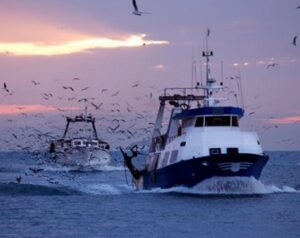
Defra announces EU fishing deal to increase fishing opportunities to £750m
Defra has announced the UK fishing industry will benefit from 140,000 tonnes of fishing opportunities next year, following the conclusion of negotiations with the EU. The deal, announced yesterday, represented a 30,000-tonne increase on pre-Brexit volumes and would present UK boats with opportunities worth over £280m in 2023 in EU waters. This brought the total value of fishing opportunities secured for the UK fleet in 2023 in the three main negotiation forums to £750m, a £34m increase from last year, Defra said. >click to read< 09:15
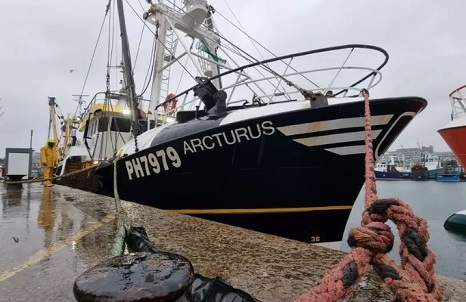
Boat that helped save 39 migrants returns to Plymouth
A fishing trawler which helped rescue 39 migrants attempting to cross the English Channel has returned to Plymouth. A dinghy was found sinking in freezing waters off the Kent coast in the early hours on Wednesday. A 19-year-old man has been charged over the deaths of four people who died in the Channel. Skipper Raymond Strachan said his boat and crew were “just in the right place at the right time”. >click to read< 12:32
Teenager charged after deadly Channel migrant boat sinking – The United Kingdom has charged a 19-year-old man over a deadly incident in the English Channel in which a boat packed with migrants capsized, resulting in the loss of four lives. >click to read<
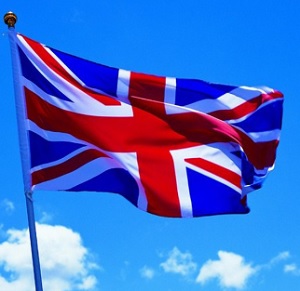
UK reaches agreement on key fish stocks for 2023
The UK has reached agreements with the EU and Norway, and wider coastal states, to secure valuable fishing opportunities for the UK fishing industry. Negotiating as an independent coastal State, the UK agreed catch levels for 2023 for six important fish stocks in the North Sea including North Sea cod, haddock and herring. This comes as the UK also concluded negotiations on catch limits with coastal States in the North East Atlantic on three more key stocks to the UK fishing fleet – blue whiting, mackerel and atlanto-Scandian herring. In total, UK quota in these stocks will be worth around £256m to the UK fishing industry next year. >click to read< 11:15
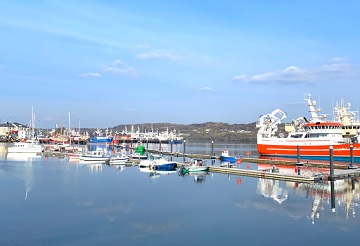
KFO to Highlight Litany of Festering Problems Facing the Fishing Sector
Morale in the Irish fishing industry is at an all-time low as rocketing fuel costs, shrinking quotas and the lingering legacy of Brexit are all proving extremely problematic. This will be the message brought to an Oireachtas Committee later today by the Killybegs Fishermen’s Organisation. KFO Chief Executive, Seán O’Donoghue, said the challenges facing the sector are manifold. And, although complex, his members have presented and agreed solutions to all of the key issues which are realistic, credible and based on scientific evidence. >click to read< 15:46
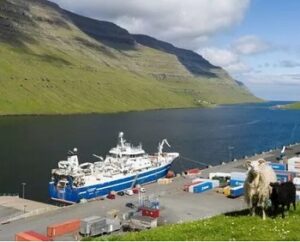
Anger as Faroe Islands renew fishery agreement with Russia
The Faroese granted Moscow the right to catch tens of thousands of tons of blue whiting in a special area shared with Britain despite the war in Ukraine. Ian Gatt, chief executive of the Scottish Pelagic Fishermen’s Association, said: “It is hugely disappointing, if not surprising, that Faroe has concluded a fisheries agreement for 2023 with Russia. The fishing industry spent months calling on the Government to pressure the island country – 200 miles north of Scotland – to maximise damage to Vladimir Putin’s war machine by banning his trawlers. >click to read< 09:12
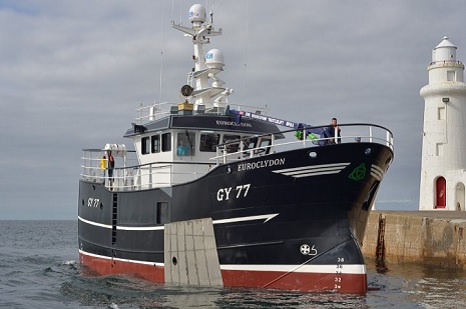
Fishing Vessel Review: Euroclydon – Scottish Designed Vivier Crabber Delivered to Devon Owner
Macduff Ship Design of Scotland has confirmed the recent completion and delivery of a new crab fishing vessel to owner Stuart MacDougall of Devon-based fishing company Euroclydon. The newbuild, which is also named Euroclydon, is the second Macduff-designed crab fishing vessel built for the same owner in the space of only three years. Euroclydon features many similarities to MacDougall’s first vessel, Levanter, with a similar arrangement throughout. However, with increased length, beam, and depth, the newer vessel provides noticeably more space all around to enhance crew comfort, seakeeping, and fishing activity. Photos, specifications, >click to read< 16:41
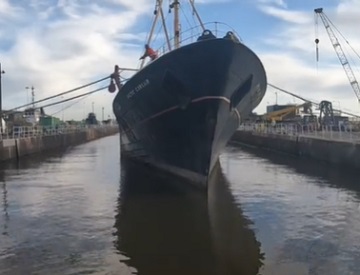
Hull’s Arctic Corsair trawler wins flagship award for teaching about life at sea
The Arctic Corsair has been recognised for its role in educating people about the historic trawler trade, winning a prestigious award. National Historic Ships UK bestowed the award to Hull Maritime Museum – the team behind the restoration of both the Arctic Corsair and Spurn Lightship – at a ceremony in Chatham’s Historic Dockyard, Kent, on Tuesday. There were three categories in the Flagship of the Year 2022 award. “As the restoration of the Arctic Corsair progresses, it is important that we continue to raise awareness of her career and significance within the fishing industry in different and creative ways.” Video, Photos, >click to read< 11:09
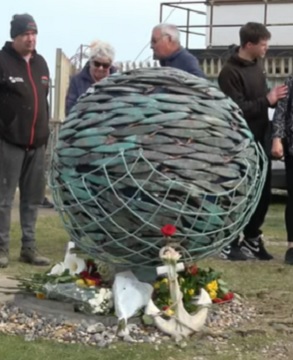
Remembering the F/V Joanna C fishing boat tragedy on second anniversary
Today we remember the second anniversary of the tragic sinking of the Joanna C fishing boat off the Sussex coast near the port of Newhaven in which two fishermen lost their lives. On the morning of 21st of November 2020 6am HM Coastguard received a EPIRB alert located around three nautical miles at Seaford near Newhaven from the vessel Joanna C. Three fishermen were on board at the time of sinking, one of them was pulled out of the water and brought to shore by the Newhaven RNLI. Unfortunately, 2 other crew were lost at sea. Adam Harper, 26, from Brixham and Robert Morley, 38, from Pembrokeshire. 2 videos, >click to read< 09:57
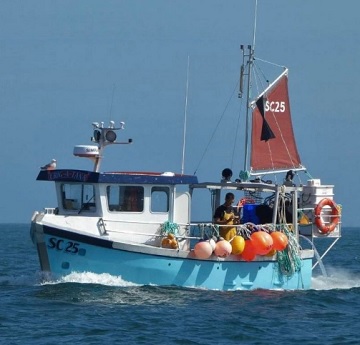
Fishermen’s ‘terrifying’ ordeal on sinking boat off Lizard point – crewman and skipper are now unable to work
Two fishermen who survived a terrifying ordeal when a fishing vessel started to sink are still struggling to keep their heads above water financially due to the loss of his boat. Crewman Callum Hardwick, of Ottery St Mary, Devon, and skipper Brett Jose, of Cadgwith, Cornwall, were dramatically rescued at sea when their boat F/V Crig A Tana sunk off Lizard Point on November 12. The boat was the youngest vessel in the Cadgwith fishing fleet. The local community in Cadgwith Cove is rallying around to help the pair get back on their feet and an online Crowdfunder has been set up. The target is to raise £10,000 and half of it has already been achieved in a short space of time. >click to read< 08:18
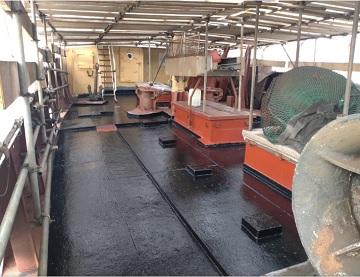
What a transformation! Before and after photos as Ross Tiger deck works complete
Vital renovation works to the deck of historic trawler Ross Tiger are now complete. The scheme, which started on Monday 5 September, has included removing the rotten timber deck to reveal the steel deck below which was then inspected, grit blasted and painted. Some of the timber was able to be removed for conservation and will return to the museum’s collection. The visual and ultrasound inspections revealed the steelwork to be in much better condition than it could have been, with only minor repairs required. Photos, >click to read< 10:08
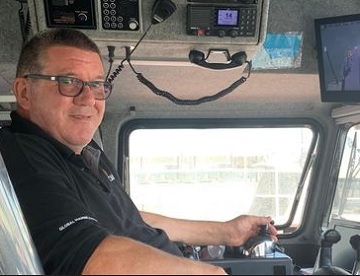
Great Yarmouth fisherman swaps shrimp for offshore wind
From inshore shrimper to head skipper on offshore wind crew transfer vessels, Wally Saunders turned generations of his family’s love and living from the sea to a future in the industry harvesting wind to power the UK’s future. For generations, the Saunders family looked to the sea off Great Yarmouth and Gorleston for their living. In all weathers, great grandfather, grandfather, father and sons hauled shrimp, herring, cod and Dover sole onto boats owned by the family through the decades, and on to the deep-sea trawlers, fishing smacks and herring drifters where the older generations worked as deckhands and mates. >click to read< 10:16
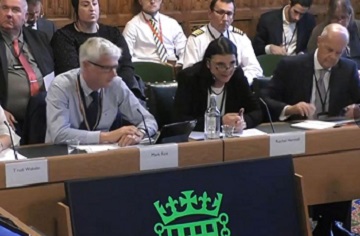
Experts quizzed over freeport, dredging and algal blooms as crab deaths on coast investigated
The deaths of thousands of sea creatures washed up on Teesside’s beaches are to be investigated in the House of Commons on Tuesday. Teesport operator PD Ports, the Environment Agency, a Whitby fishing association and academics will give evidence to MPs about the mass sea deaths. The Environment, Food and Rural Affairs select committee will hear from witnesses about the crustacean deaths after committee chair Conservative Sir Robert Goodwill, MP for Scarborough and Whitby, branded the situation “disturbing”. A Defra investigation earlier this year concluded the cause of the crab deaths to be a naturally occurring algal bloom but campaigners believe dredging has unearthed historical toxins – including a chemical called pyridine – which has caused the deaths. >click to read< 12:15
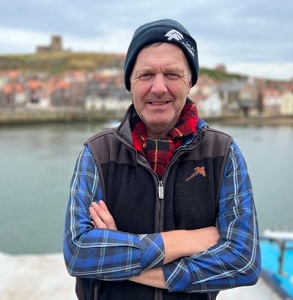
BBC documentary examines mass crab die off on Teesside coast and what has happened since
A TV documentary examining the impact of the mass crab and lobster die off on the Teesside coast is set to air. We Are England: Trouble at Sea looks at the events of last October and what has happened since. In it, film makers speak to fishermen, conservationists, the Tees port authority PD Ports and scientists to document the effects of the worrying occurrence, the subsequent investigation and the theories on its cause that have been an ongoing source of dispute. Teessiders will know huge piles of crabs, lobsters and shellfish began to wash up on beaches around the Redcar and Markse areas as well as Hartlepool a year ago before washing down the coast as far as Whitby. They were seen in piles that were waist deep in some places and most were dead or dying.>click to read< 21:32
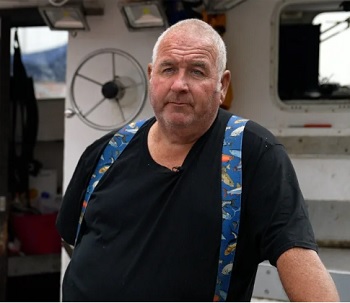
Impact of mass crab die-off ‘not as severe as feared’ but report criticised by fisherman
A monitoring report into the state of shellfish stocks along the Teesside coast following the mass crab and lobster die off has concluded the impact ‘was not as severe as originally feared.’ But a fisherman who works off the Hartlepool coast has hit out at the findings and claims it does not paint a true picture. However, Stan Rennie, who fishes from Hartlepool, has criticised the report. He says it includes the catches of all of the visiting super crabbers which work thousands of pots, and he says, it doesn’t take into account the fact that fishermen are going further afield to get out of the die-off areas. >click to read< 14:48
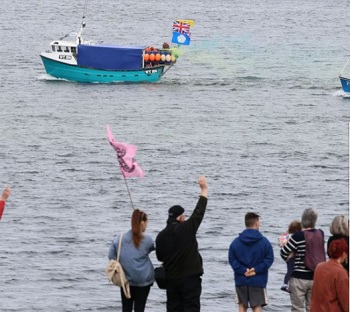
Mass shellfish deaths off Whitby area coastline to be probed in Government’s new hearing – Middlesbrough Council ‘absolutely on board’
The Government’s Environment Food and Rural Affairs (EFRA) Committee is to probe the deaths of large numbers of crustaceans off the coast over the past year in a hearing at the House of Commons on Tuesday October 25. ERFA previously blamed algal bloom as the cause of the deaths, but an independent probe carried out recently pointed towards dredging and the chemical pyridine being the most likely cause, with some Whitby fishermen calling for the dredging of the Tees to halt. >click to read< Middlesbrough Council ‘absolutely on board’ with joint probe planned into crustacean deaths – Councillor Mick Saunders, chairman of Middlesbrough Council’s overview and scrutiny board, said: “Absolutely we are on board, I think there’s more to come out really, more than what the Government has been saying. Meanwhile, self-employed Hartlepool fisherman Stan Rennie, a member of the North East Fishing Collective (NEFC), has said fishermen are in a “desperate position” with half of the town’s shellfish fleet lost in the past year. >click to read< 08:30
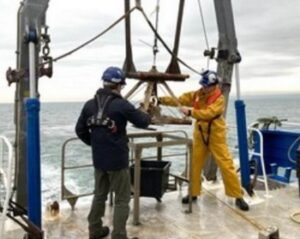
Deaths, accusations and a search for truth: The Teesside seaside die-off and where we are now
It is an issue that has caused a huge amount of concern right the way across Teesside and down into North Yorkshire. And it is simply not going away. Last October, residents living in the Marske area began to notice huge piles of dead and dying crabs, lobsters and shellfish washing up on the beach between the seaside town and neighbouring Saltburn – in places, the piles were waist deep. Fishing livelihoods have been decimated, protests have been mounted and the campaign for a re-investigation continues. Here’s what has happened so far as the issue continues to prove contentious. >click to read< 07:58
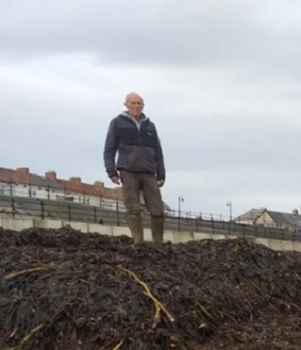
Killing joke: how Defra dismissed the Tees Bay die-off
It seems that no matter how often Defra and its partner agencies are exposed as inept over their handling of this crisis, their response is simply to deny the truth and carry on. The grim response of the Environment Agency (EA) to the mass crustacean die-off in Tees Bay moved up a gear last week. Where once they only patronised the inshore fishermen about the probable cause, they have now shown themselves prepared to do it on national TV. Friday 30 September Channel 4 News featured the ongoing tragedy and, in the process, interviewed Hartlepool fisher, Stan Rennie. Video link, >click to read< For more about this, >click here< 07:52
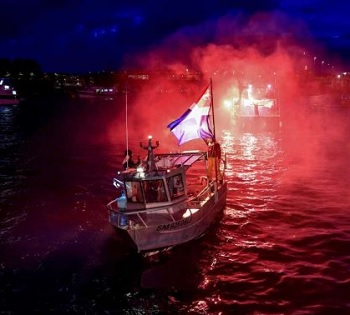
Post-Brexit Fishing: 1,054 Fishing Licenses Obtained, A Fleet Exit Plan for Dockside Fishermen
It is the epilogue of a diplomatic-commercial battle of more than a year between Paris and London, arbitrated by Brussels. France finally obtained 1,054 fishing licenses from the UK and the Channel Islands, allowing holders to continue fishing in their waters, as before Brexit. For the dozens of fishermen who have remained on the sidelines or whose activity has been drastically reduced, the government has planned a “individual support plan”or a fleet exit plan for ships that will be destroyed. >click to read< 07:56
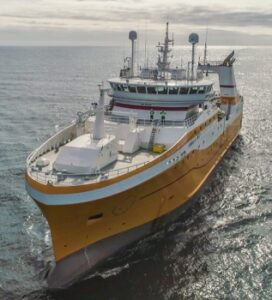
Scots fishers urge ministers to resist campaign for giant freezer trawler
The UK Government is being urged to ignore a “concerted campaign” to deprive Scottish fishers of quota in favour of a huge, foreign-owned freezer trawler operating out of a British port. Scottish Pelagic Fishermen’s Association chief executive Ian Gatt and Shetland Fishermen’s Association executive officer Simon Collins said lobbying by the vessel’s owner, East Yorkshire-based UK Fisheries, to secure more fish “must be resisted”. Mr Gatt said: “This vessel operates out of Hull, but is owned primarily by Dutch and Icelandic interests, is largely operated by a non-UK crew and processes its catch on board. >click to read< 09:31
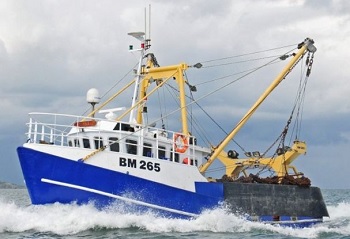
F/V Joanna C: Fishermen deaths were accidental, inquest says
Two fisherman died accidentally when their trawler capsized and life raft failed to inflate, an inquest has concluded. The 45ft scalloping vessel capsized after getting snagged on whelk pots, the inquest at Hastings Coroner’s Court heard. Marine Accident Investigations Branch inspector Joanna Dorman told the jury: “We don’t know what would have happened had the life raft inflated. But we do know that it had an adverse effect on the chance of surviving.” Ms. Dorman also said the vessel had been modified since its last stability analysis in 1997, and that the stability was below the level it should have been. She described the vessel at the time of the accident as being “vulnerable” to capsizing. >click to read< 15:43
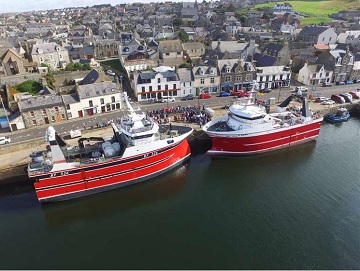
Naming ceremony for new fishing vessels held at Macduff
A special naming ceremony took place on the quays of Macduff Harbour celebrating the building of two new fishing trawlers – Endeavour V and Venture IV. Owned and operated by Whitehills-based brothers Peter and Mark Lovie and partners, these trawlers have the distinction of being the largest produced by Macduff Shipyards to date. The memorable day was organised by the Lovie family and included a large group of guests including many of the businesses involved in both the building and operation of the vessels. Photos, >click to read< 10:03
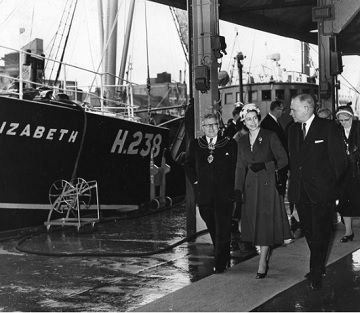
The day the Queen came to Hull’s Fish Dock
As the Royal train steamed slowly into the station, the sun shone suddenly through the grey clouds and misty rain that had darkened the day. The Queen’s first visit to Hull was made on Saturday May 18, 1957, and accompanied by the Duke of Edinburgh, she was cheered every step of the way. The city was the departure point for the Royal Yacht Britannia for the couple’s state visit to Denmark, but before that they spent a total of seven hours in the city. A highlight of the tour was a trip to the (St Andrew’s) Fish Dock. Bobbers were discharging the catch of the trawler Princess Elizabeth, and Prince Philip jumped from the dock on to the deck of the vessel to watch the fish being hauled out of the hold. >click to read< 21:11






